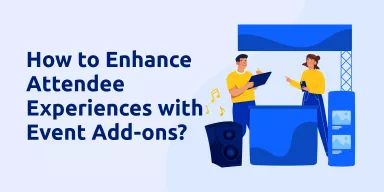
The foundation of networking (creating a network of contacts) is to find people who can help you develop your careers. Scientists have discovered that a larger social network helps career growth, gaining lucrative jobs, raising salary and overall job satisfaction. You do not have to be an influential person or the most open person in the world to communicate effectively with others.
Take a step forward. Start with people you know from work or social life and attend a networking event. Keep your ears tight and listen to information that can bring you an edge.
Scary Networking
Unless you're used to this idea, networking can make you horrified. You might think it's something for very self-confident types that get the best job anyway. But this is not the whole problem. People are used to networking as a valuable business tool. The internet has made networking a viable option for everyone. There are lots of forums and business networking sites that allow business owners to share and discuss their opinions and knowledge. If you can keep a reasonable line between your personal and professional online presence, it's a good way to get the latest news from your industry, but it can never fully replace going out there and meeting people in person.
What are the benefits of networking?
Many good jobs will never get to recruiting firms, newspapers or LinkedIn. They are shared by word of mouth. And the higher the position, the more likely it is that you will never find this job advertised anywhere. It's good to know someone in an organization that can help you get in. It can only end with an interview that is always less stressful.
Like other forms of social behavior, networking has some rules too:
- The first impression matters - face to face, by phone or e-mail. Always try to be prominent.
- Do not ask directly for a favor - networking is not a trade fair; it's just a chance to get potentially useful information.
- Give and take - networking is a two-way exchange and not something that is free.
- Do your homework - learn about your contacts before you meet them, and maximize the opportunity.
- Think in context - try expanding your network by stepping out from your comfort zone or usual sphere of operation.
- Patience is a virtue - dedication to the networking is a marathon, not spring; do not expect to find a dream job or to close a deal after the first meeting.

We are all networking every day, even without realizing it. Networking is just purposeful, consistent socializing.
Creating your network
While you're new to the game, you might have a lot of valuable contacts you've never even though of before:
- old schoolmates from high school or college
- distant family members
- a family of your friends
- your doctor, lawyer or accountant
- former colleagues or superiors
- club members or anyone with whom you socialize
Building a network via events
Networking meetings and conferences are a good way to build a network if you are not sure where to start. Find out why you are and what you expect from it, and make sure you have a business card that you would pass on to important contacts you will meet. Here are the most common networking events:
Breakfast Networking Event
The majority of networking events takes place in the evening. Therefore for a morning person, breakfast networking is a great way to start your day. Breakfast meetings work especially well the morning before a long day of work and meetings. We have recently co-organized two CMO Breakfast networking events with American Chamber of Commerce.
Roundtable Events
Roundtable events give you an option to meet people in small groups. Roundtables allow for open forums and discussions that, more often than not, lead to creative ideas and new directions. It's a good opportunity to make new connections in the meantime and they provide open interaction.
Women/Men Organizations
Being involved in clubs and organizations specifically designed for women or men can help you to create a relationship with individuals who could be a great referral source.
Happy Hour Networking
Networking can be really stressful. Sipping a drink while mingling with people in a relaxing atmosphere is what makes Happy Hour networking events so popular.
Professional Associations
Professional association members tend to be from one specific type of industry. The main purpose is to exchange information and ideas. This is a simple procedure for targeting key groups. No matter what industry you are in, there are always people around to learn from. Take advantage of networking events in your area that hold events on a topic directly related to your working area.
Groups on social media
The digital age of networking is a blessing for the introvert in all of us. There are a ton of networking groups and forums on LinkedIn and Facebook (most major professional groups and their local chapters also have their own LinkedIn groups) that allow relationship-building (both business and personal) on a daily basis.

Following up after the event is also part of the networking.
Follow up after the networking event
Keep track of who you've met and what you've been talking about - it makes no sense to create a network of contacts that you'll forget. After the event send people you have met a“nice to meet you” message with a mention of a topic you have discussed with the person, so you remember the context of the conversation. If the event you have attended has an event app for attendees, your job might be easier. Also keep in regular contact, even if you do not need anything specific at the moment. You do not want to be known as the person who only calls when in need.
Are you or your organization running events? We have a solution for you. Learn about our event management software by booking a demo!



